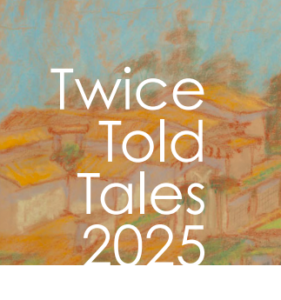Profile of the American Studies Interdisciplinary Major
UC Berkeley American Studies majors develop individually articulated areas of concentration that focus on a specific issue, question, or problem relating to American culture, politics, economy, social structure, environment, media, international relations, or the like. Our program is unique among Interdisciplinary American Studies programs. Most programs were formed decades ago as alliances between Literature and History–sometimes articulated as Texts and Contexts–and have modernized their curricula mainly in response to the broadening of literatures and historical questions within these two disciplines. In contrast, our program, formed in the mid 1990s, draws on a far broader spectrum of fields of knowledge, including law, business, ecology, geography, political economy, material culture, architecture, performance, and ethnic, racial, and urban studies. Equally important, our program is designed around a unique set of questions relating to the axes of Space and Time, as well as around a thematic axis, selected by the student, related to specific problems and issues in American life. These orientation axes enable our majors to engage in studying the American experience in a focused yet broadly interdisciplinary and integrated way.
American Studies Learning Goals:
The goal of the American Studies Interdisciplinary Major is to enable students learn a set of research, critical thinking, and written and oral communication skills that will enable them to become self-conscious and thoughtful investigators of American society. To meet this basic goal, our courses are designed to give students a basic understanding of American history, culture, political economy, social structures, and environment (both natural and constructed), as well as to enable them to use a range of concepts and methods to define and analyze significant problems, issues, and questions relating to American life. Through a close reading of diverse texts and physical and cultural materials, American Studies students learn how to critically analyze how individuals, groups, and a wide variety of political, economic, and cultural institutions have interacted to shape and give meaning to the American experience.
Specific Learning Goals:
I Research Skills:
a. Students learn how to locate and evaluate primary source materials and secondary texts. These include published contemporary and historical documents, artifacts of material culture, landscape and architectural structures, visual and auditory media, oral history and folklore.
II Critical Thinking Skills:
a. Students learn how to analyze and evaluate cultural texts including literature, performance, film, art, etc. and demonstrate a basic understanding of cultural theory and aesthetics (i.e., to understand and think critically about American society from a humanities perspective).
b. Students learn to critically analyze and evaluate social science arguments, demonstrating an understanding of the premises of qualitative and quantitative evidence. (i.e., understand and think critically about American society from a social science perspective).
c. Students learn to analyze and understand the American past so as to gain perspective on and critical understanding of current issues and problems in American life. (i.e., to understand and think critically about American society from an historical perspective -which by definition integrates humanities and social science approaches).
d. Students learn to critical analyze and interpret the meaning of American material culture and its built and natural environments. (i.e., understand and think critically about American society from the perspectives of the knowledges embodied in the disciplines of geography, architecture, landscape architecture, environmental studies, and art).
III Written and Oral Communication Skills
a. Students learn how to communicate effectively in written form, demonstrating the ability to formulate a well organized argument supported by evidence.
b. Students learn how to communicate effectively orally, while demonstrating the ability to listen and respond to what others are saying.
IV Specialized Knowledge
a. Time: Students gain in depth, substantive knowledge about American life and culture in a particular year.
b. Place: Students gain in depth, substantive knowledge about American life and culture in a particular city, region, or other place.
c. Students gain in depth substantive knowledge about particular themes, issues, problems, and questions in American life and experience.
V Integrative knowledge and skills
a. Students demonstrate their mastery of all of the above skills by writing a Senior Thesis that is a focused interdisciplinary research project in their specialized area of concentration.




